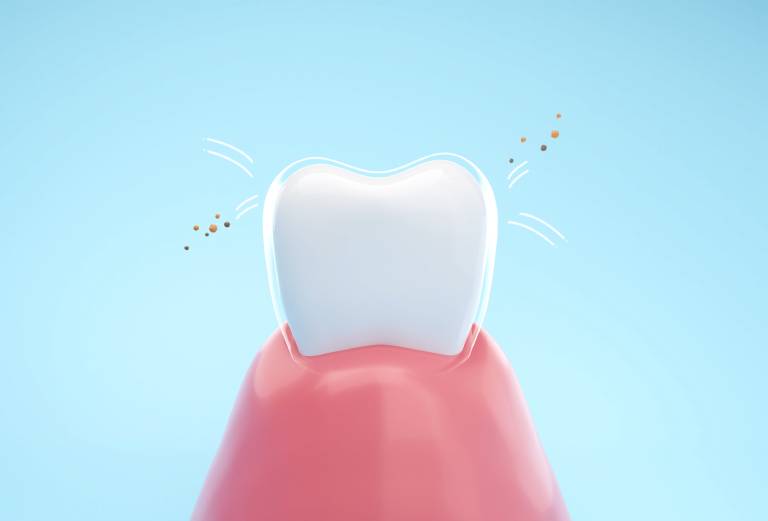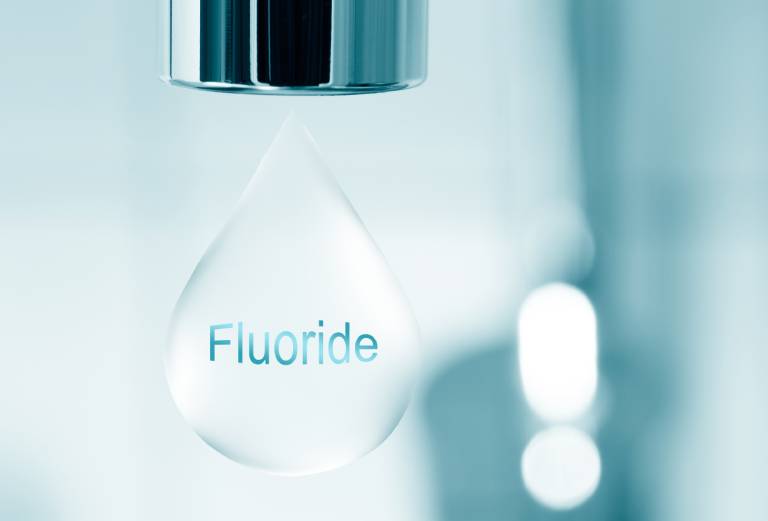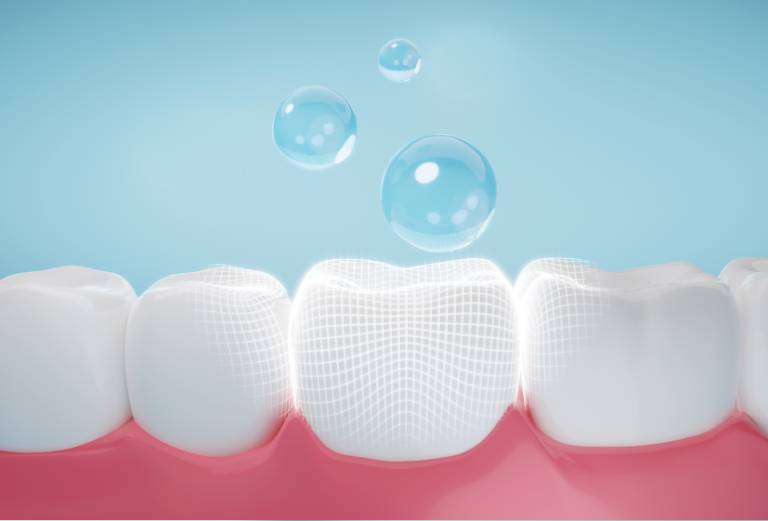Menu
What Does Fluoride Do To Your Teeth
Understanding what fluoride does to your teeth is important.
Common Questions Include:
Is fluoride good or bad for you?
What does fluoride do to your teeth?
Should I keep fluoride on my teeth?
In this guide, we walk you through everything you need to know about fluoride.
We’ll answer:
- What exactly is fluoride?
- How does fluoride work?
- What are the types of fluoride?
- What are the benefits of fluoride?
- What are some sources of fluoride?
- What does fluoride do to your teeth?
- Why is fluoride important for oral health?
Let’s jump right in!
 What is Fluoride?
What is Fluoride?
Fluoride is a naturally occurring mineral that is found in water, soil, and rocks. It is also added to public water supplies and many dental products, such as toothpaste and mouthwash.
Fluoride is important for oral health because it helps to prevent cavities and strengthen tooth enamel.
 How Does Fluoride Work?
How Does Fluoride Work?
Fluoride works to prevent cavities and strengthen tooth enamel in two ways:
- It makes tooth enamel more resistant to acid attacks from bacteria. When we eat sugary foods, bacteria in our mouths produce acids. These acids can attack tooth enamel and cause cavities. Fluoride helps to make tooth enamel more resistant to these acid attacks.
- It helps to remineralize tooth enamel. Fluoride can help to repair small areas of damage to tooth enamel. This process is called remineralization.
When fluoride comes into contact with teeth, it forms a protective layer on the enamel. This layer helps to make the enamel more resistant to acid attacks from bacteria. Fluoride also helps to remineralize teeth, which means that it can help to repair small areas of damage to the enamel.
What Are The Different Types of Fluoride?
There are two main types of fluoride:
- Systemic fluoride: Systemic fluoride is ingested through food, water, and supplements. It is absorbed into the bloodstream and travels to the teeth, where it helps to strengthen tooth enamel.
- Topical fluoride: Topical fluoride is applied directly to the teeth. It can be found in toothpaste, mouthwash, fluoride gels, and fluoride varnishes. Topical fluoride forms a protective layer on the teeth that helps to prevent cavities.
Systemic fluoride is most important for children because their teeth are still developing. Topical fluoride is most important for adults because they are more likely to have cavities.
Here are some specific examples of different types of fluoride:
- Sodium fluoride: Sodium fluoride is the most common type of fluoride used in dental products. It is found in most toothpastes, mouthwashes, and fluoride gels.
- Stannous fluoride: Stannous fluoride is a less common type of fluoride found in some toothpastes and mouthwashes. It is effective at preventing cavities and gum disease.
- Acidulated phosphate fluoride (APF): APF is a type of fluoride found in some toothpastes and fluoride gels. It is also used in fluoride treatments at the dentist’s office.
- Sodium monofluorophosphate (SMFP): SMFP is a type of fluoride found in some toothpastes. It is similar to sodium fluoride in terms of its effectiveness.
The best type of fluoride for you depends on your individual needs and preferences.
Talk to Dr. Harrell about the best type of fluoride for you and your family.
 Main Benefits of Fluoride
Main Benefits of Fluoride
The main benefits of using fluoride are:
- Prevents cavities: Fluoride is the most effective way to prevent cavities. It works by making tooth enamel more resistant to acid attacks from bacteria.
- Strengthens tooth enamel: Fluoride helps to strengthen tooth enamel by replacing lost minerals. This makes the teeth more resistant to decay and chipping.
- Reduces the risk of gum disease: Fluoride can help to reduce the risk of gum disease by fighting bacteria and plaque. Gum disease is a leading cause of tooth loss, so it is important to take steps to prevent it.
- Helps to whiten teeth: Fluoride can help to whiten teeth by removing surface stains. This can make your smile look brighter and healthier.
Fluoride is especially important for children because their teeth are still developing. Children’s teeth are more vulnerable to cavities, so it is important for them to get enough fluoride. Fluoride can help to protect children’s teeth from cavities and give them a healthy start to life.
Fluoride is also important for adults. Adults can still get cavities, and fluoride can help to prevent them. Fluoride can also help to strengthen tooth enamel and reduce the risk of gum disease.
What Are Some Sources of Fluoride?
The main sources of fluoride include:
Drinking water: Most public water supplies in the United States have fluoride added. Fluoride is naturally present in some water sources, but it is often added to public water supplies at levels that are safe and effective at preventing cavities.
Toothpaste: Fluoride toothpaste is the most common way to get fluoride. Fluoride toothpaste helps to prevent cavities by making tooth enamel more resistant to acid attacks from bacteria.
Mouthwash: Fluoride mouthwash is another way to get fluoride. Fluoride mouthwash can help to reduce plaque and bacteria in the mouth, which can help to prevent cavities and gum disease.
Fluoride treatments: Fluoride treatments can be applied to the teeth by a dentist or hygienist. Fluoride treatments are typically done for children and adults who are at high risk for cavities.
In addition to these main sources, there are other ways to get fluoride, such as:
Food: Some foods naturally contain fluoride, such as fish, shellfish, and leafy green vegetables. However, the amount of fluoride in food is typically low.
Supplements: Fluoride supplements are available, but they are not necessary for most people. Fluoride supplements may be recommended for children who live in areas without fluoridated water or who are at high risk for cavities.
When fluoride comes into contact with teeth, it forms a protective layer on the enamel. This layer helps to make the enamel more resistant to acid attacks from bacteria. Fluoride also helps to remineralize teeth, which means that it can help to repair small areas of damage to the enamel.
What Does Fluoride Do To Your Teeth?
Fluoride protects your teeth by making tooth enamel more resistant to acid attacks from bacteria and by helping to remineralize teeth. This helps to prevent cavities, strengthen tooth enamel, and reduce the risk of gum disease.
Why Is Fluoride Important to Dental Health?
Fluoride is crucial for maintaining optimal oral health due to its ability to prevent tooth decay and strengthen dental enamel.
When ingested or applied topically, fluoride becomes incorporated into the structure of developing teeth, making them more resistant to acid attacks from bacteria and acidic foods. This mineral also promotes the remineralization of weakened enamel, reversing the early stages of tooth decay.
Additionally, fluoride helps to inhibit the growth of harmful oral bacteria and reduces the production of acid by these microbes, further protecting teeth from cavities. The widespread use of fluoride in toothpaste, mouthwash, and community water fluoridation programs has significantly contributed to the decline in dental caries, making it an essential component of any comprehensive oral hygiene regimen.
If you have any additional questions regarding fluoride, come visit Mesa Street Dental today!

